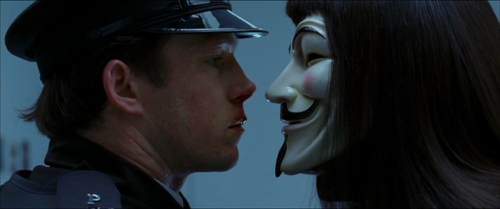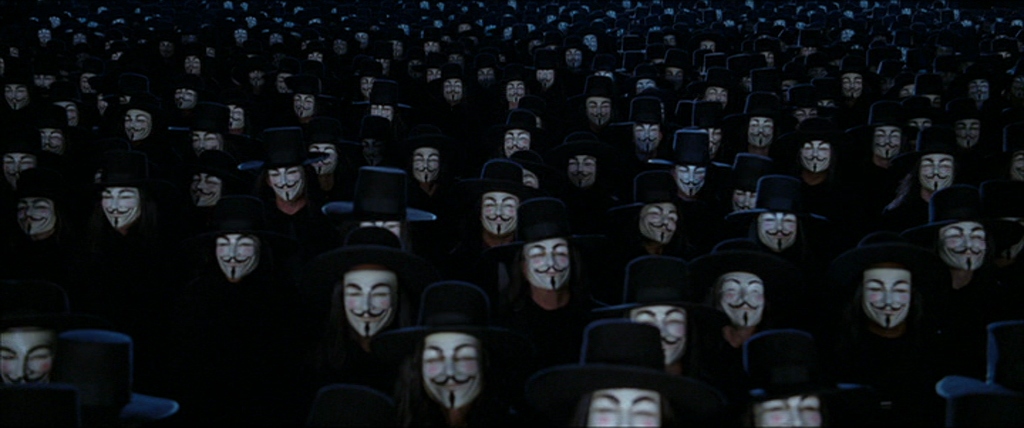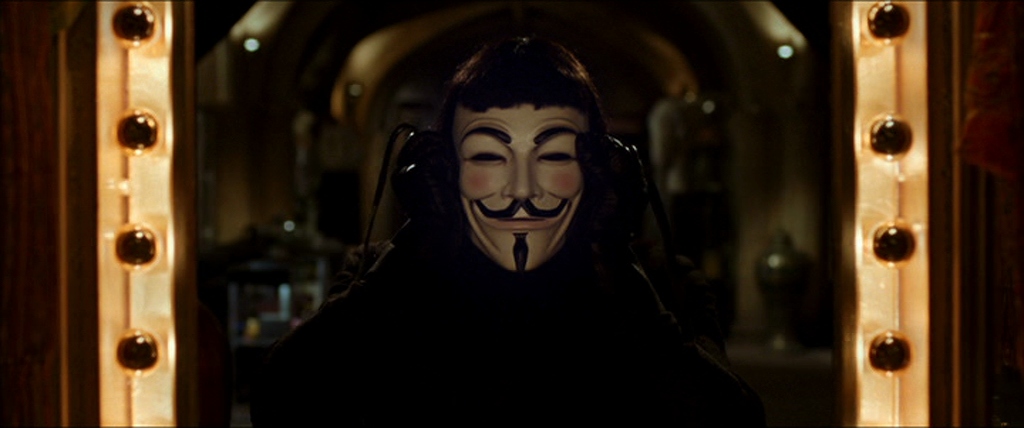Directed by James McTeigue, ‘V for Vendetta’ is a political action film set in a future dystopian world. The movie follows a masked vigilante V (Hugo Weaving), who wants to tear down the oppressive regime that rules over the United Kingdom. Soon, he saves an employee of the state-run television named Evey Hammond (Natalie Portman) from law enforcement. Thus, Evey becomes a part of V’s mission to end the tyrannical rule of the fascist dictator.
After hijacking the very network, V urges the general public to rebel against the government and meet him outside the British Parliament on the next Guy Fawkes Night, i.e., the 5th of November. The revolutionary themes portrayed in the movie and the historical references make one wonder about the truth behind the story. Here is what we have been able to dig up!
Is V for Vendetta Based on a True Story?
No, ‘V for Vendetta’ is not based on a true story. The inspiration behind the 2005 movie is a British graphic novel of the same name, written by Alan Moore and illustrated by David Lloyd. It was adapted to the screen by the Wachowskis — Lana Wachowski and Lilly Wachowski, who are fans of the graphic novel. Director James McTeigue was influenced by many films while helming the Hugo Weaving starrer. His principal inspiration is ‘The Battle of Algiers,’ the 1966 war film that is a realistic retelling of the Algerian revolution against the French.

The writers and director tried to stick close to the themes and socio-political elements of the original story. Talking about the source material, Moore reportedly penned the story keeping in mind the prevalent Thatcherism in 1980 Britain. It depicts the conflict between the fascist state and anarchist elements of society. Unlike the movie, the character of V in the novel is ruthless and has a very skewed moral compass. He will do whatever it takes to achieve his goals, no matter the cost. The depiction of V in the novel is very different from the movie that portrays V as more of a self-sacrificing freedom fighter.
The motive of character V, according to the writer, is not to promote any one school of political view. It is to look back at the extreme events throughout history. Like other adaptations of his works, Moore did not wish to associate with the 2005 film. He considered the movie to be an attempt to address American issues using British settings and characters. In the writer’s opinion, the film strayed from the anarchy depicted in the novel and portrayed V as a hero, which he decidedly is not.

Despite Moore’s misgivings regarding the intended message of the movie, its cultural impact certainly cannot be denied. The Guy Fawkes mask has been around for a long time, given its relation to the Gunpowder Treason Plot of 1605. The film, however, made the mask famous across the globe. The number of Guy Fawkes masks sold since the release of the movie is more than hundreds of thousands. Both Moore and Lloyd have expressed their happiness at the use of the Guy Fawkes Mask by people as a sign against brutality and oppression.

Several people around the world have used the mask in their movements to make a statement. In conclusion, ‘V for Vendetta’ is not based on any real story but a graphic novel. However, the inspiration behind both the literature and the elements introduced in the movie comes from real-life politics. Many critics have drawn parallels between the V and Edmond Dantès from ‘The Count of Monte Cristo’. Others have compared several elements of the film to Gaston Leroux’s The Phantom of the Opera.
Read More: V for Vendetta Ending, Explained


You must be logged in to post a comment.